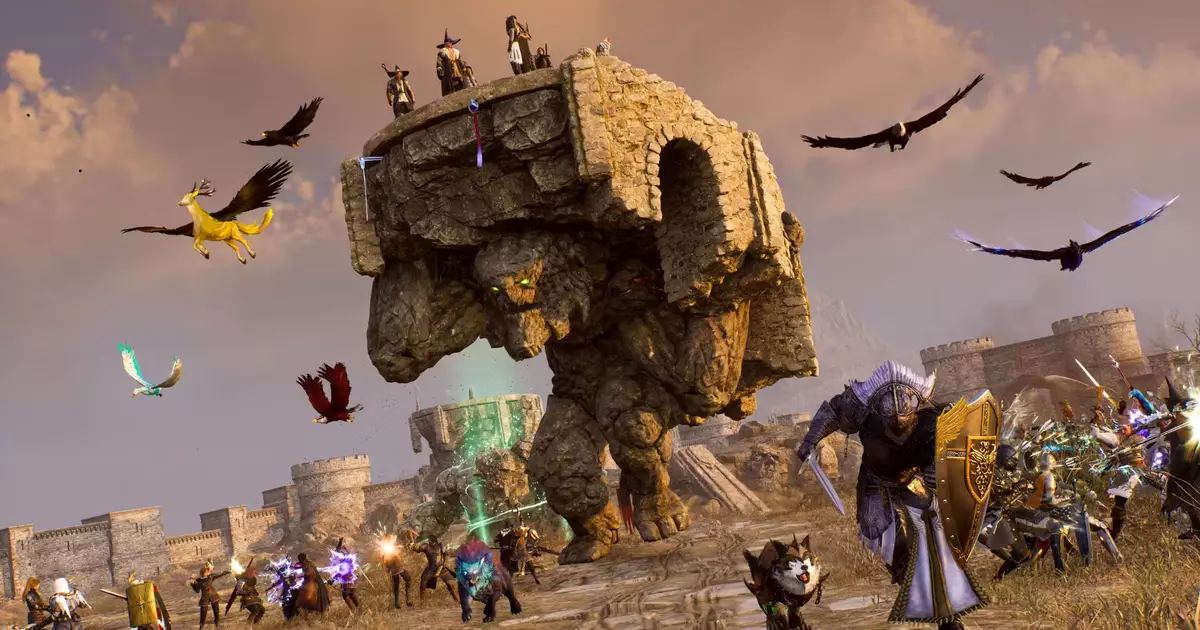With its recent launch, Amazon and NCSOFT’s new RPG, Throne And Liberty, has already made impressive waves on Steam, rapidly climbing the rankings and catching the attention of players worldwide. However, while the initial excitement is palpable, underneath the surface lie critical challenges and considerations that could shape its longevity.
Debuting right behind blockbuster titles like Black Myth: Wukong, Throne And Liberty’s positioning at number six on Steam underscores the excitement and interest surrounding this title. It’s reminiscent of attending a high-profile gathering where anticipation fills the air— a whirlwind of hope and uncertainty. The game builds on an already active player base that was stirred up during its beta earlier in the year, proving that the developers managed to capture considerable attention before the final release.
However, it’s worth noting that the game may not yet have achieved the same mainstream recognition as other titles like Banana, which has set the bar high for engagement and retention in the RPG market. The distinct medieval fantasy setting filled with mythical creatures like knights and goblins is appealing, but players are keenly aware of what this genre has to offer. As such, Throne And Liberty must deliver an experience that not only meets expectations but also surpasses them.
One of the standout features of Throne And Liberty is its unique ability for players to shapeshift into various creatures, such as birds and fish. This mechanic is not merely an aesthetic choice; it adds a new layer to navigation and interactions within the expansive game world. Players can engage in siege warfare as massive golems or traverse complex terrains with ease. This dynamic approach to gameplay offers excitement but also raises questions about the balance and depth of such mechanics. Will transforming into a beast genuinely enhance the gameplay experience, or could it simply become a gimmicky element that pales in comparison to more linear gameplay styles?
The community buzz surrounding these revolutionary mechanics is undeniable. Yet, with excitement often comes scrutiny: how effectively does this transformation integrate into the game’s core systems? Additionally, there lies the potential problem of whether these abilities can maintain their appeal long-term; gamification strategies must continuously engage players to prevent monotony from setting in.
Despite the initial hype, Throne And Liberty is grappling with significant teething issues—namely, extended wait times and microtransactions that have quickly developed into player grievances. Reports of players spending up to 45 minutes on character creation, only to be disconnected due to server issues, threaten to mar the game’s launch success. This is particularly concerning, as it may dissuade new players from diving into what should be an exhilarating RPG experience. Additionally, compatibility issues with popular gaming hardware like the Steam Deck raise worries regarding accessibility.
Nevertheless, on a positive note, many players are expressing satisfaction with the game’s visual aesthetics and dynamic combat systems. The absence of fixed classes provides players the flexibility to adopt different playstyles based on weapon choices, a refreshing concept in the often rigid class systems seen in other games. Yet, alongside innovation, a common thread of anxiety exists within the player base: the fear of performance and judgment when teaming up in dungeons, reminiscent of experiences in games such as Final Fantasy XIV.
Ultimately, Throne And Liberty emerges as a title brimming with potential amid a flurry of challenges. The engaging mechanics and immersive visuals suggest the possibility of capturing a wide audience, but continued success hinges on the developers’ ability to address pressing concerns. If they can streamline player experiences, fix connectivity issues, and foster a supportive community atmosphere, the game could evolve from its current position into a beloved staple within the RPG landscape.
Whether Throne And Liberty will transform the way players experience MMOs remains to be seen. Will it be able to cultivate a community akin to the well-loved games that have dominated the genre? As it stands, the response from both players and developers will ultimately define its trajectory and legacy. For those considering jumping into this enticing yet tumultuous RPG, being mindful of both its promises and pitfalls will be essential in shaping their journey.

